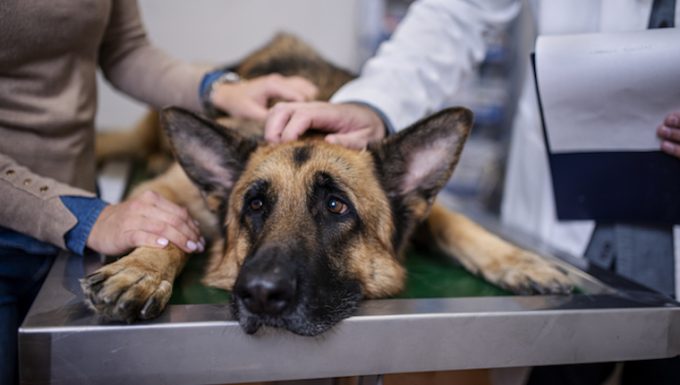Hemangiosarcoma in dogs is a type of canine cancer. The condition is caused by problems with blood vessels. It often affects the skin, heart, and spleen.
Generally, older dogs are affected by the condition the most. Additionally, certain breeds including Boxers, Labrador Retrievers, and German Shepherds can be predisposed to it.
If you see the signs of the condition in your dog, get to a veterinarian for a proper diagnosis and treatment.
Here’s what you should know about the symptoms, causes, and treatments for the condition.
Symptoms of Hemangiosarcoma in Dogs
The condition produces a range of symptoms. For example, the most common symptoms include:
- Gums turning pale
- Becoming weak
- Loss of appetite
- Acting lethargic
- Coughing
- Collapsing
- Breathing problems
- Vomiting
Causes of Hemangiosarcoma in Dogs

The cause of the condition is often unknown. However, genetics can play a part. For instance, the following breeds are most at risk:
- German Shepherd
- Boxer
- Labrador Retriever
- Pit Bull
- Golden Retriever
Treatments for Hemangiosarcoma in Dogs
Firstly, your vet will ask about your dog’s symptoms. Secondly, your vet will ask about your dog’s full medical history. This will include any breed-specific problems.
Thirdly, a full physical examination will be carried out. Blood and urine tests will also be taken.
Ultimately, imaging techniques can figure out the extent of the condition. These include ultrasounds, MRIs, and X-rays. Also, a biopsy can be used.
Generally, treatment will remove the tumor. Chemotherapy and radiation therapy can also be tried.
Additionally, medication can control symptoms. As always, if your vet prescribes your dog any medicine, stick to the correct dose and frequency instructions. Also, complete the full course of medicine.
Finally, while recovering at home it is important to provide your dog with a quiet and calm environment. Also, keep up regular visits with your vet to monitor your dog’s progress.
Have you ever cared for a dog who suffered from this condition? How did your vet help your dog recover? Let us know in the comments section below.









